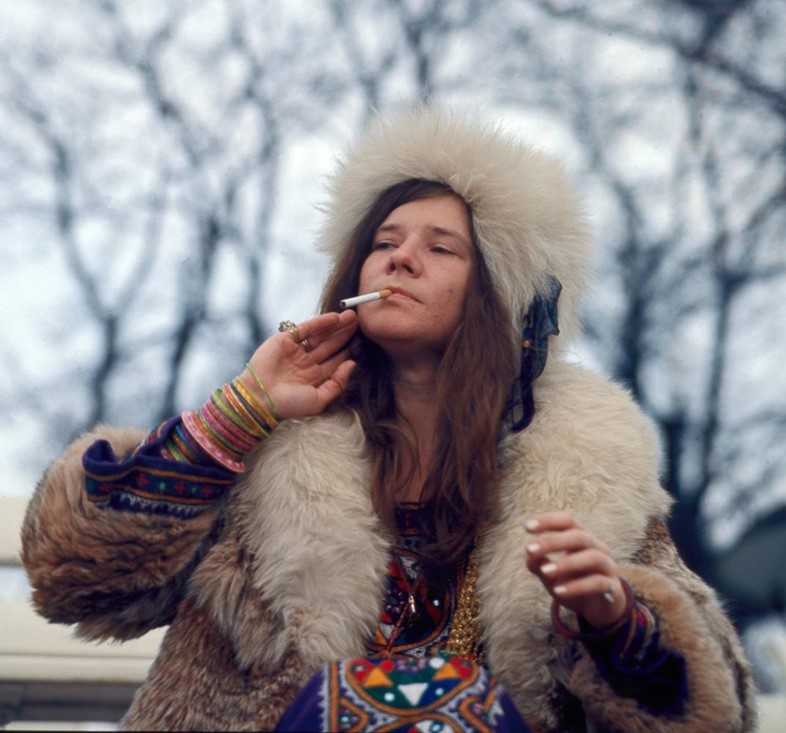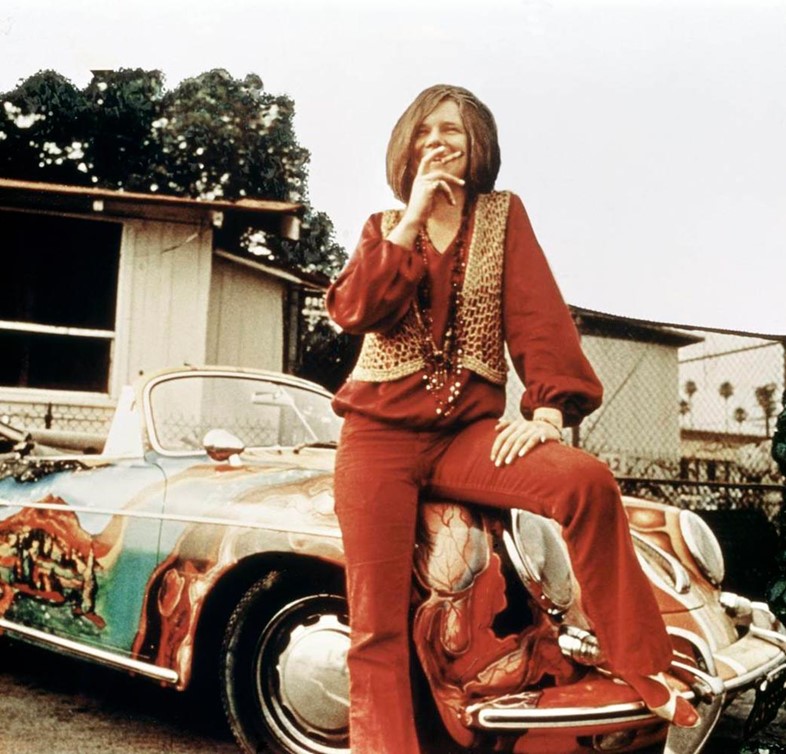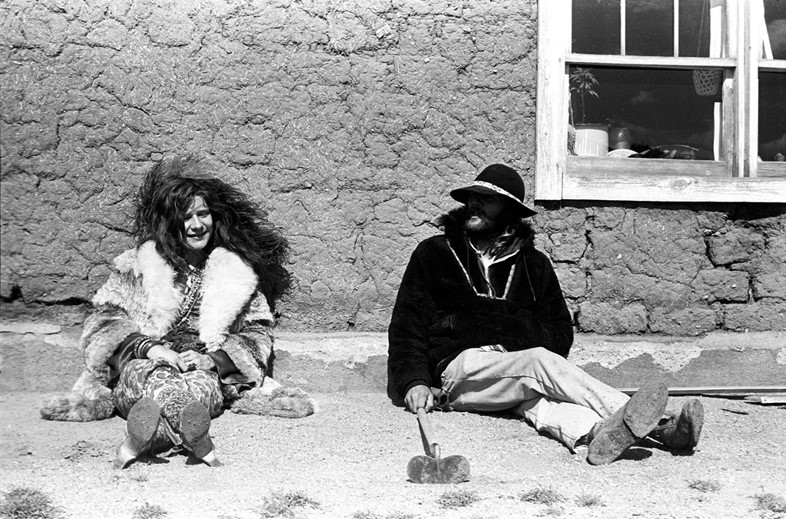Ahead of its February release, we present an exclusive extract from Amy Berg's new documentary about the counter-culture icon
Janis Joplin, the gravel-voiced icon of the 1960s counter-culture, has long been the subject of beleaguered Hollywood producers desperate to get a biopic of her life off the ground. Amy Adams was the most recent star tipped to play the fiery-haired hell-raiser in a long-awaited film, until the project was halted last year when it ran into legal problems. Zooey Deschanel, Renée Zellweger, Lili Taylor and Pink were all rumoured at various points to play the infamous blues-rock singer, who experienced a meteoric rise to stardom but burned out just as she was finishing her indelible record Pearl. With her larger-than-life stage presence and soul-shaking voice, it seems inevitable now that Joplin would become one of the defining musicians of the 20th century. Yet as Amy Berg's moving new documentary, Janis: Little Girl Blue shows, her path was far from easy. Through archive material and new interviews, Berg paints a vivid portrait of a deeply sensitive soul blighted by casual cruelty and easily disposed to self destruction. Though she enjoyed unprecedented success in her band and later as a solo artist, Joplin was a lifelong outsider who desperately wanted to be loved.

Amy Berg, who directed the critically acclaimed documentary West of Memphis and the Oscar-nominated Deliver us From Evil, struggled for years to get the film made. Eventually, she was contacted by Joplin's estate manager, who helped her gather the all-important archive material, some of it, like footage of Joplin's Woodstock set, never seen before. Featuring letters read by singer-songwriter Chan Marshall, aka Cat Power – herself no stranger to the devastation that accompanies heartbreak – Janis: Little Girl Blue is a poem to the eternal little girl whose life was cut tragically short. Berg interviewed a host of friends and acquaintances for the documentary, from Joplin's younger sister Laura, to members of her band as well as the Grateful Dead, and a lover who remembers Joplin, the proverbial complete unknown, approaching Bob Dylan after a concert and telling him she would one day be famous. The archive footage captures a diva performing at full-throttle, flamboyant in beads and feather boas, hair flowing wildly, and wowing her peers (including a visibly awed Mama Cass in DA Pennebaker's documentary Monterey Pop) as much as her adoring fans. In interviews, Joplin was magnetic, with her full, throaty laugh and stack of sassy one-liners.

It is almost half a century since Joplin died of a heroin overdose in her room at the Landmark Hotel in LA at the age of 27. Much is made of the so-called 27 Club, the constellation of ill-fated musicians from Jimi Hendrix to Kurt Cobain who lost their lives at the same age. Berg's film dwells little on the sad fact of Joplin's death, instead opting to celebrate the woman who overcame the many setbacks in her life to become one of the enduring talents of her time. Her poison may have been Southern Comfort and latterly, fatally, heroin, but she was fired by the love and adulation of her fans. It was her searing emotional honesty, as much as her strength and ambition, which made her irresistible. In one wincingly relatable scene, still drawn to the cruel theatre of her youth, Joplin invites talkshow host Dick Cavett to come along to her high school reunion and presumably show them, if they didn't already know, what she'd made of herself (he declined). A biopic may yet be made, but the music, and the archive, all woven beautifully together in Berg's film, is as compelling as any feature film could hope to be.

Janis: Little Girl Blue is in UK cinemas from February 5, 2016.